For Ewen McIntyre, soon to turn 60, the Bobath concept of therapy has been – and continues to be – a central part of his life.
Despite the challenges of living with athetoid cerebral palsy, Ewen’s life is full of friendships, fun and very much good fortune. Growing up in sunny California, Ewen continues to enjoy life and lives happily at Capability Scotland’s Upper Springland in Perth. And for the last seven years he has also worked directly with Cerebral Palsy Scotland in Glasgow.
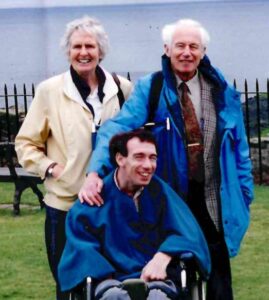
Ewen’s parents, Ann and Donald, grew up as neighbours in Edinburgh and on their marriage in 1957 Ann joined Donald in the college town of Claremont, California, where Donald taught geology for most of his career and where Ewen was born in July 1961.
It was several months until they became aware that there was something unusual about Ewen’s physical development progress. In due course on a visit to a hospital in Los Angeles, this problem was diagnosed as a form of cerebral palsy. On explaining to the doctor they were shortly to be visiting Ewen’s grandparents in Scotland, they were advised to include an appointment at the Bobath Cerebral Palsy Centre in London, and in August 1962 were able to arrange a consultation with Mrs Bobath. They were encouraged by her assurance that the Bobath approach to physical therapy could help Ewen to progress if the family were able to make a return visit to work with her and her team the following summer.
Ann continues, “We were, of course, eager to follow up on this offer. Happily, when Ewen was two years old and thanks to a financial windfall, in 1963 and subsequent summers we were very privileged to benefit from these annual visits to London and enjoy and learn from Mrs Bobath and her helpful staff. Each visit in its own special way, was a remarkable happy and heart-warming experience.”
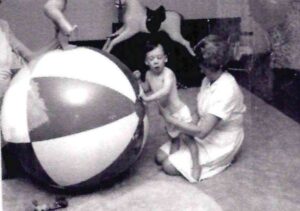
“Dr Bobath gave a strong medical background to the clinic and for both of them, Mrs Bobath’s work with patients and students was their supreme delight and a unique gift to families like our own who were adapting to life with someone challenged by cerebral palsy. As a couple, they had so much fun together, teasing each other with jokes and laughter while all their energy and interest was poured out on working in concert together to help their patients at their very busy clinic. And now sine 60 years on, this London centre continues to retain the Bobath name and its fame as an international teaching centre for physiotherapists.”
“In 1963, for us as new parents, these visits were always a time of learning, of interest, encouragement and pleasure as we tried to increase our understanding of how best we could help Ewen. And we were greatly cheered by spending time with other young families and adults with cerebral palsy who, despite their challenges, were able to live full and interesting lives. On some of our London visits we lodged at the home of a friend who lived just around the corner from the Bobath clinic, where the Queen’s horses went clattering by each morning while out on their daily exercise. Perhaps it was no wonder that Ewen himself came to be an enthusiastic horse rider and, in 1980, won an award at the National Cerebral Palsy Games in Texas, USA!”
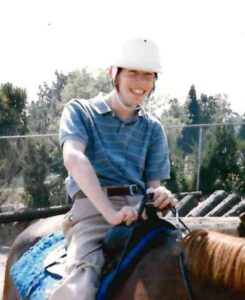
“These annual summer visits led to a personal connection between our two families. When Mrs Bobath was invited to Los Angeles to deliver a lecture there we were greatly honoured to have the couple spend the weekend with us at our Californian home. We were delighted to share with them the fun of Donald leading us all on a geological visit to The Joshua Tree National Park. The unique and beautiful rock formations there were indeed of special interest to Mrs Bobath who enjoyed sculpture as a hobby.”
“In 1989, on Donald’s retirement from teaching, our family chose to return to our native Scotland so that Ewen might benefit from linking up with Capability Scotland’s Upper Springland centre here in Perth. This has indeed turned out to be an excellent move but some time past before we learnt of the existence of the Bobath Scotland centre in Glasgow.”
“So a new chapter has opened on Ewen’s life and our regular visits to the centre over the past seven years have become a highlight of learning and of helping Ewen to hold his own. He continues to benefit as well as to greatly enjoy his work with the skilled and patient senior physiotherapist and friend Philip Vervaeke, at what has wisely been renamed Cerebral Palsy Scotland. The therapy Ewen receives there is of superbly high quality. I would say that Ewen has a confidence that he probably wouldn’t have had otherwise. The lovely, cheerful way that Philip works with people, Ewen just really responds beautifully to him. And currently, in keeping pace with these difficult times, some helpful virtual therapy sessions are ongoing between Perth and Glasgow!”
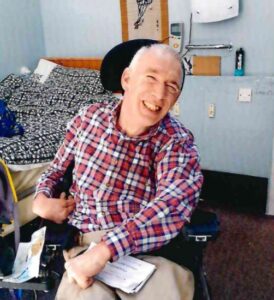
“For Ewen as an adult, the object and the benefits from Bobath-style physiotherapy certainly succeeds in helping him hold his own by slowing the pace of further deterioration in his physical well-being. Ewen can sit up straight – though sometimes only on reminder! – he smiles and laughs his way through each day as a happy and physically comfortable person. And from the bottom of our hearts we are grateful to all who help him. For the important part which you play, a very big thank you to Cerebral Palsy Scotland!”
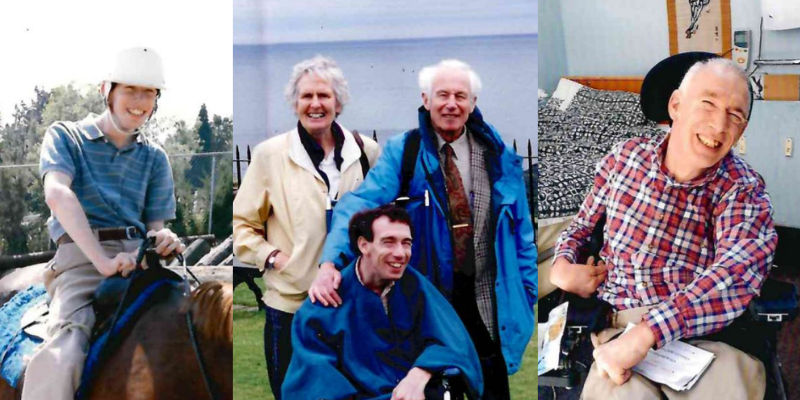
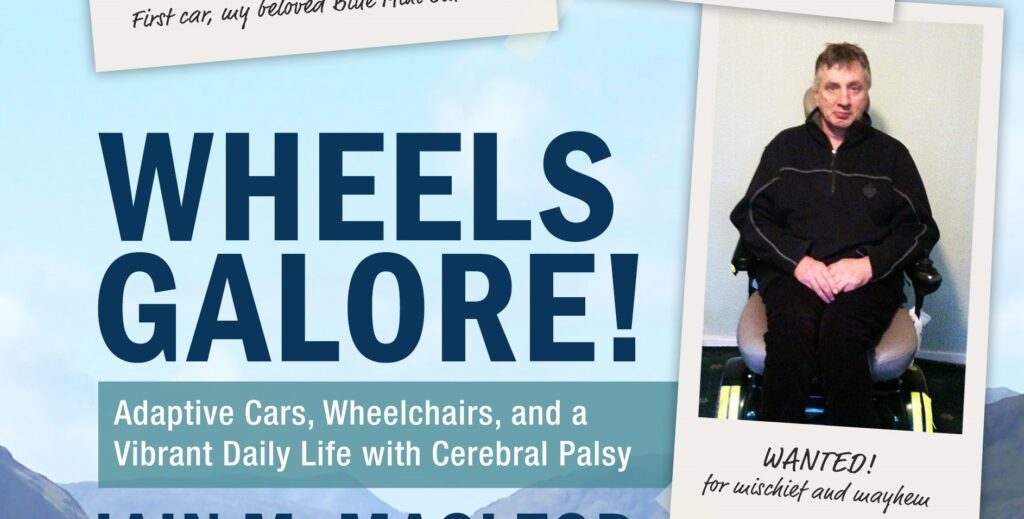
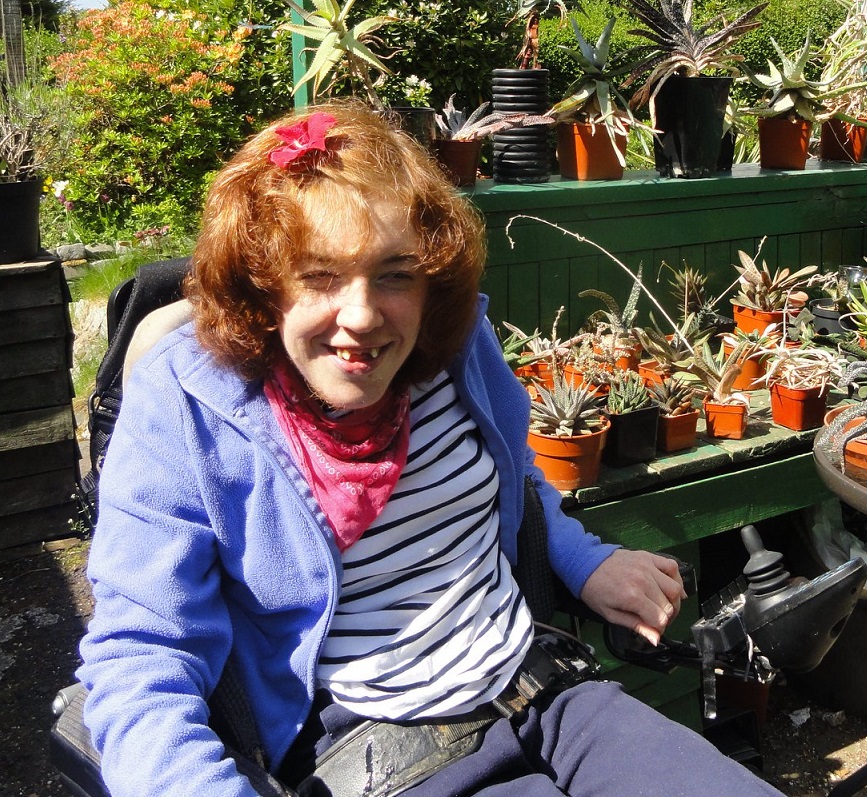
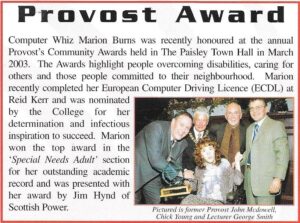
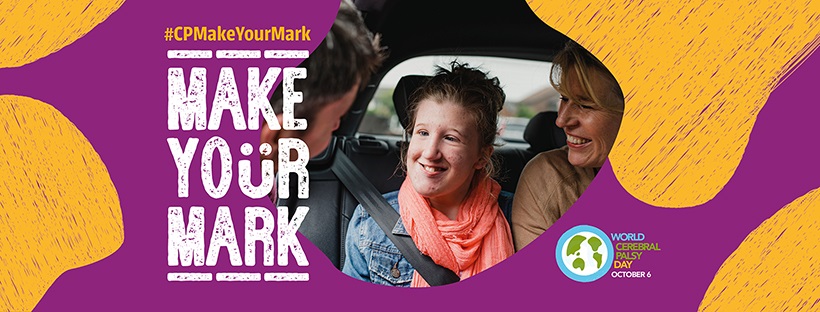
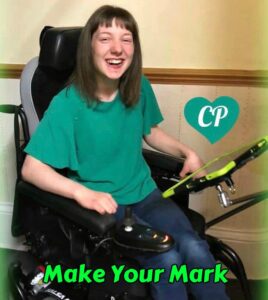 October is usually the month of Halloween, but did you know that there is a very important day before it? Yes, that’s right – it is World Cerebral Palsy Day on the 6th! The special day is to raise awareness about the disability which affects 17 million people, around the world. There are many ways that you can show your support for World CP Day.
October is usually the month of Halloween, but did you know that there is a very important day before it? Yes, that’s right – it is World Cerebral Palsy Day on the 6th! The special day is to raise awareness about the disability which affects 17 million people, around the world. There are many ways that you can show your support for World CP Day.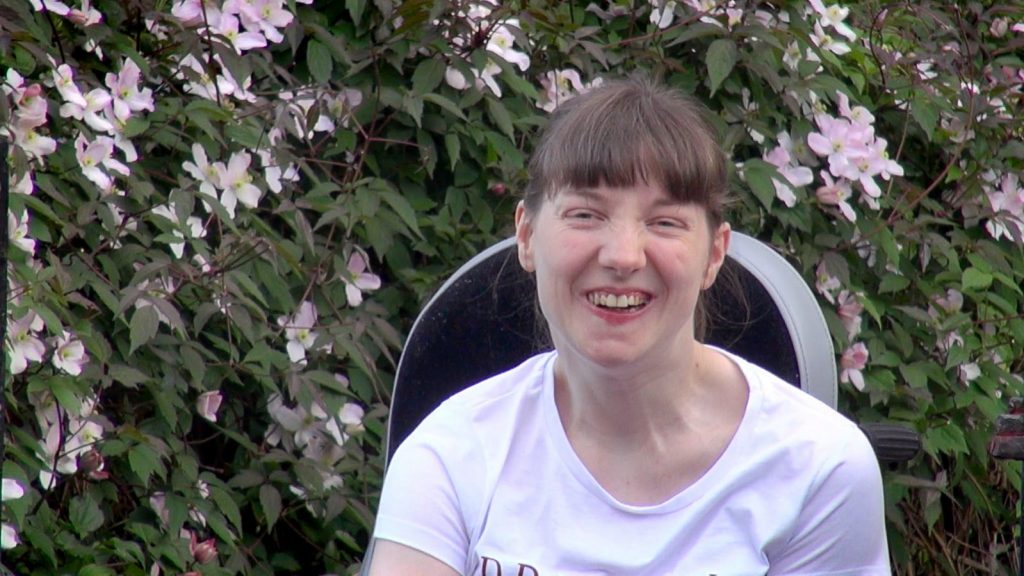
 The school had flexible learning methods and suitable accessible equipment to make things easier for me. I still got taught the same as if I was in a mainstream school, it was just a different set up. The school definitely gave me the best start in life, having the right support in school, I was able to achieve so much. I had a communication device from a very young age, I used it to the best of my ability and it made such a difference throughout my learning experience.
The school had flexible learning methods and suitable accessible equipment to make things easier for me. I still got taught the same as if I was in a mainstream school, it was just a different set up. The school definitely gave me the best start in life, having the right support in school, I was able to achieve so much. I had a communication device from a very young age, I used it to the best of my ability and it made such a difference throughout my learning experience. In 4th year, I studied Modern Studies at standard grade level so I had an exam at the end of it. This was my first exam so I worked so hard to prepare for it- I completed 10 past papers and 9 times out of 10, I passed. I was ready, I felt confident but unfortunately time got the better of me. The Scottish Qualifications Authority (SQA) only gave me 50% extra time which wasn’t enough for my second paper so I ended up failing the exam. It was so disappointing as I knew what I had to do.
In 4th year, I studied Modern Studies at standard grade level so I had an exam at the end of it. This was my first exam so I worked so hard to prepare for it- I completed 10 past papers and 9 times out of 10, I passed. I was ready, I felt confident but unfortunately time got the better of me. The Scottish Qualifications Authority (SQA) only gave me 50% extra time which wasn’t enough for my second paper so I ended up failing the exam. It was so disappointing as I knew what I had to do.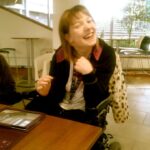 Further Education- In 2012, I became a college student at Glasgow Clyde College: Langside Campus. The course was called ‘Transition to Mainstream’ which my school suggested that I go on as I didn’t know what I wanted to do at that point. I liked the course but it wasn’t challenging enough for me, it was aimed at people to learn everyday skills etc. to live independently. I stuck at the course to gain more qualifications and it gave me a great work placement opportunity too.
Further Education- In 2012, I became a college student at Glasgow Clyde College: Langside Campus. The course was called ‘Transition to Mainstream’ which my school suggested that I go on as I didn’t know what I wanted to do at that point. I liked the course but it wasn’t challenging enough for me, it was aimed at people to learn everyday skills etc. to live independently. I stuck at the course to gain more qualifications and it gave me a great work placement opportunity too.